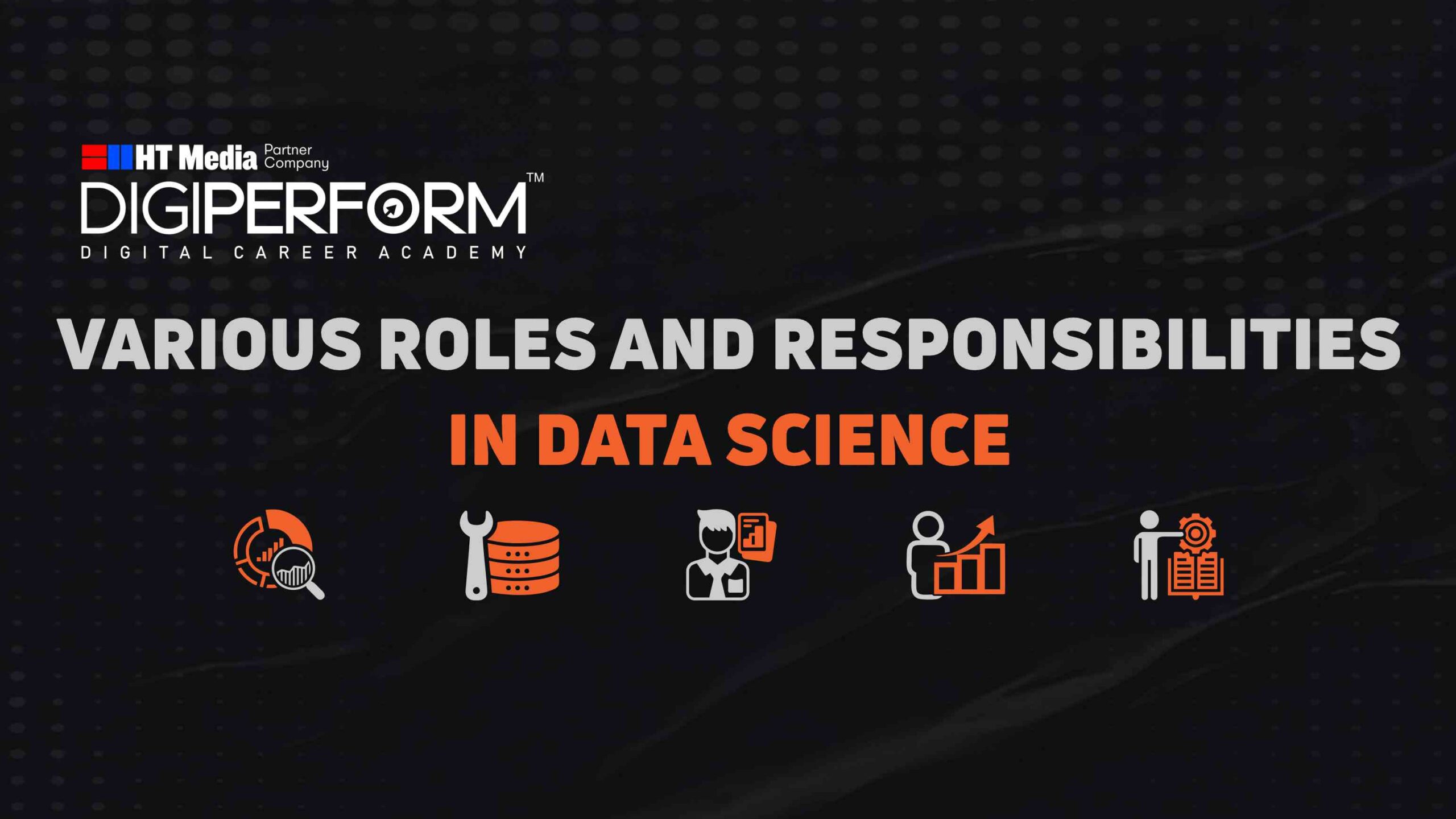Master
Data Science Courses
India’s Only Data Science Training Program created to help you to build a successful career in Data Science from scratch.
Various Roles and Responsibilities in Data Science
Data Science is emerging as a very good career option in today’s digital era. There are many job roles in the data science field that you can choose as your career. In this article, we will learn in detail about all the job roles and responsibilities available in Data Science.
What is Data Science
Data Science is like being a digital detective. Imagine you have a big box of puzzle pieces, and your job is to put them together to see the whole picture. In simple words, Data Science is about collecting, organizing, and understanding information from different sources like websites, apps, and even old files.
Now we are going to understand the various roles and responsibilities of data science.
Data Analyst:
Imagine you’re a detective. Data analysts are like that. They look at tons of data, like numbers and information, to find patterns and trends. Their job is to figure out what the data is telling us. For example, they might study sales data to see which products are popular or which areas need improvement.
Data Engineer:
These folks are like builders and maintenance workers combined. They build and take care of the systems that store and manage data. It’s like they’re laying the foundation and making sure the plumbing works smoothly in a big data house.
Machine Learning Engineer:
Have you ever tried teaching a robot to do something? That’s what machine learning engineers do with computers. They use algorithms (fancy math instructions) to teach computers to learn from data and make decisions on their own. It’s like training a robot dog to fetch a ball.
Data Scientist:
Data scientists are like all-rounders. They do a bit of everything. They analyze data, build models, and help make decisions based on data. It’s like they’re the captains of a cricket team, playing different roles to win the match.
Business Analyst:
These are the translators between data and business. They help companies understand how to use data to improve their business. It’s like they’re the storytellers who explain what the data means and how it can help the company grow.
Data Architect:
Think of them as city planners but for data. They design the structure of data systems, deciding how data should flow and be stored in a company’s databases. It’s like designing the layout of a city to make sure everything works smoothly.
Big Data Engineer:
Big data engineers handle massive amounts of data like a traffic cop managing a busy intersection. They make sure data flows smoothly and doesn’t get stuck. It’s like keeping the traffic moving so everyone can get to where they need to go.
Data Visualization Expert:
Ever seen cool graphs and charts that make boring data look interesting? That’s the work of data visualization experts. They turn numbers into visual stories that everyone can understand. It’s like turning a recipe into a picture so everyone knows what’s cooking.
Conclusion:
Each job has its own responsibilities, but they all work together to make sense of data and help businesses make smart decisions. I hope you like all the information we have given you in this article.
Before I end, I would like to say that if you Want to make a career in this field of achievement you can do an Online Data science course (Master Certification Program in Analytics, Machine Learning, and AI) from Digiperform. India’s Only Most Trusted Brand in Digital Education
In this Data science online course You will solve 75+ projects and assignments across the project duration working on Stats, Advanced Excel, SQL, Python Libraries, Tableau, Advanced Machine Learning, and Deep Learning algorithms to solve day-to-day industry data problems in healthcare, manufacturing, sales, media, marketing, education sectors making you job ready for 30+ roles.
And to get your dream job Digiperform’s dedicated placement cell will help you with 100% placement assistance.
FAQs:
What are the typical responsibilities of a data scientist?
Data scientists are responsible for collecting, cleaning, and analyzing data to extract meaningful insights. They develop and apply machine learning algorithms, create predictive models, and communicate findings to stakeholders. Additionally, they often collaborate with cross-functional teams to solve complex business problems.
What distinguishes the roles of a data scientist, data analyst, and data engineer?
While data scientists focus on interpreting data to solve complex problems and develop predictive models, data analysts primarily concentrate on exploring and interpreting data to provide actionable insights. Data engineers, on the other hand, are responsible for designing and maintaining data pipelines, databases, and infrastructure to ensure data availability and accessibility for analysis.
What skills are required for a data scientist or data analyst role?
Skills required for data scientists and data analysts include proficiency in programming languages like Python or R, strong statistical and mathematical knowledge, data visualization techniques, domain expertise, and the ability to work with large datasets. Additionally, effective communication and problem-solving skills are essential for both roles.
What role do data scientists play in driving business decisions?
Data scientists play a crucial role in driving business decisions by analyzing data to identify trends, patterns, and opportunities. They develop predictive models to forecast future outcomes, optimize processes, and enhance decision-making across various business functions such as marketing, finance, operations, and product development.
How do data science roles contribute to innovation and problem-solving in organizations?
Data science roles contribute to innovation and problem-solving in organizations by leveraging data-driven insights to identify new opportunities, improve operational efficiency, enhance customer experiences, and develop innovative products and services. Data scientists collaborate with interdisciplinary teams to tackle complex challenges and drive innovation through evidence-based decision-making.











